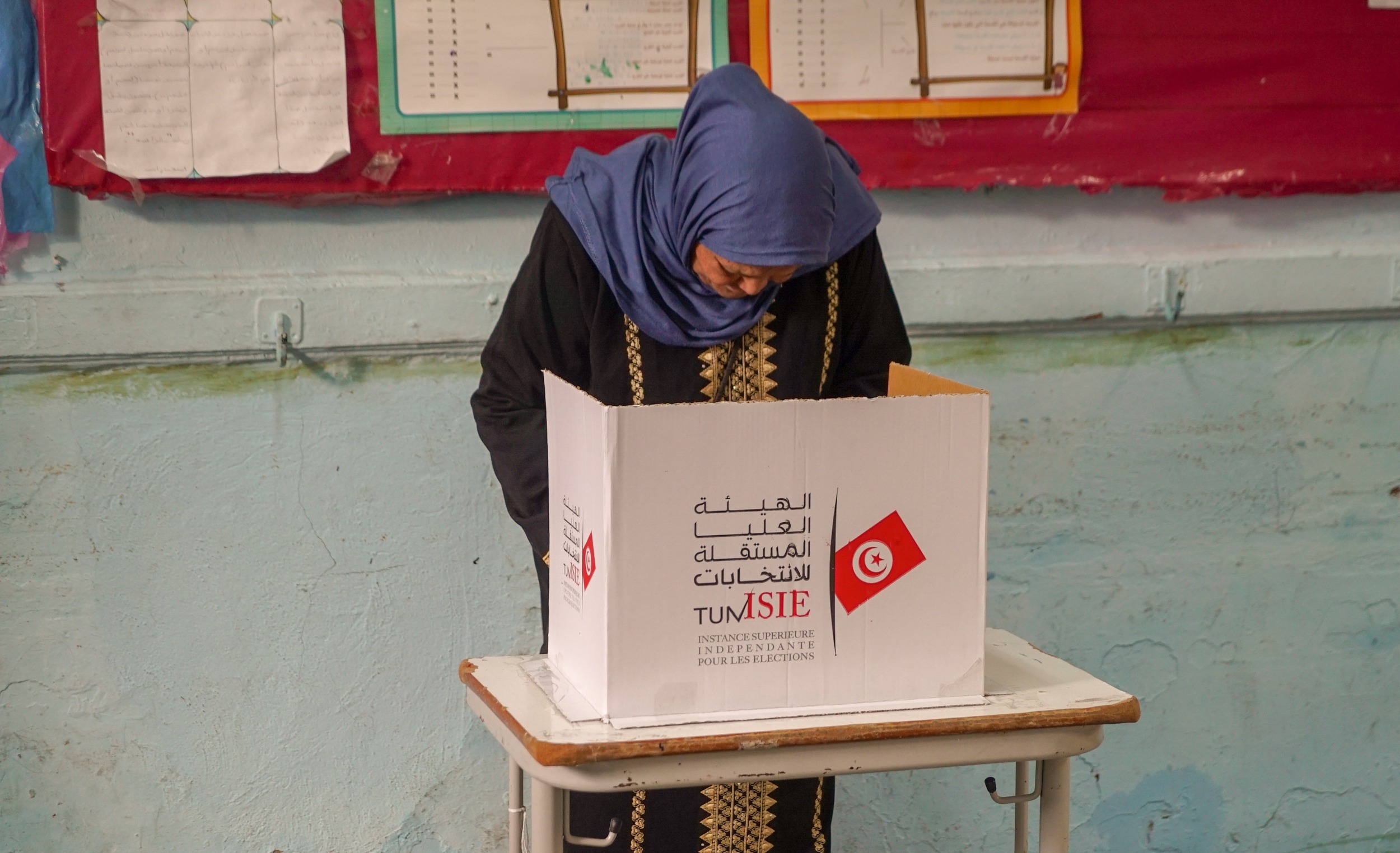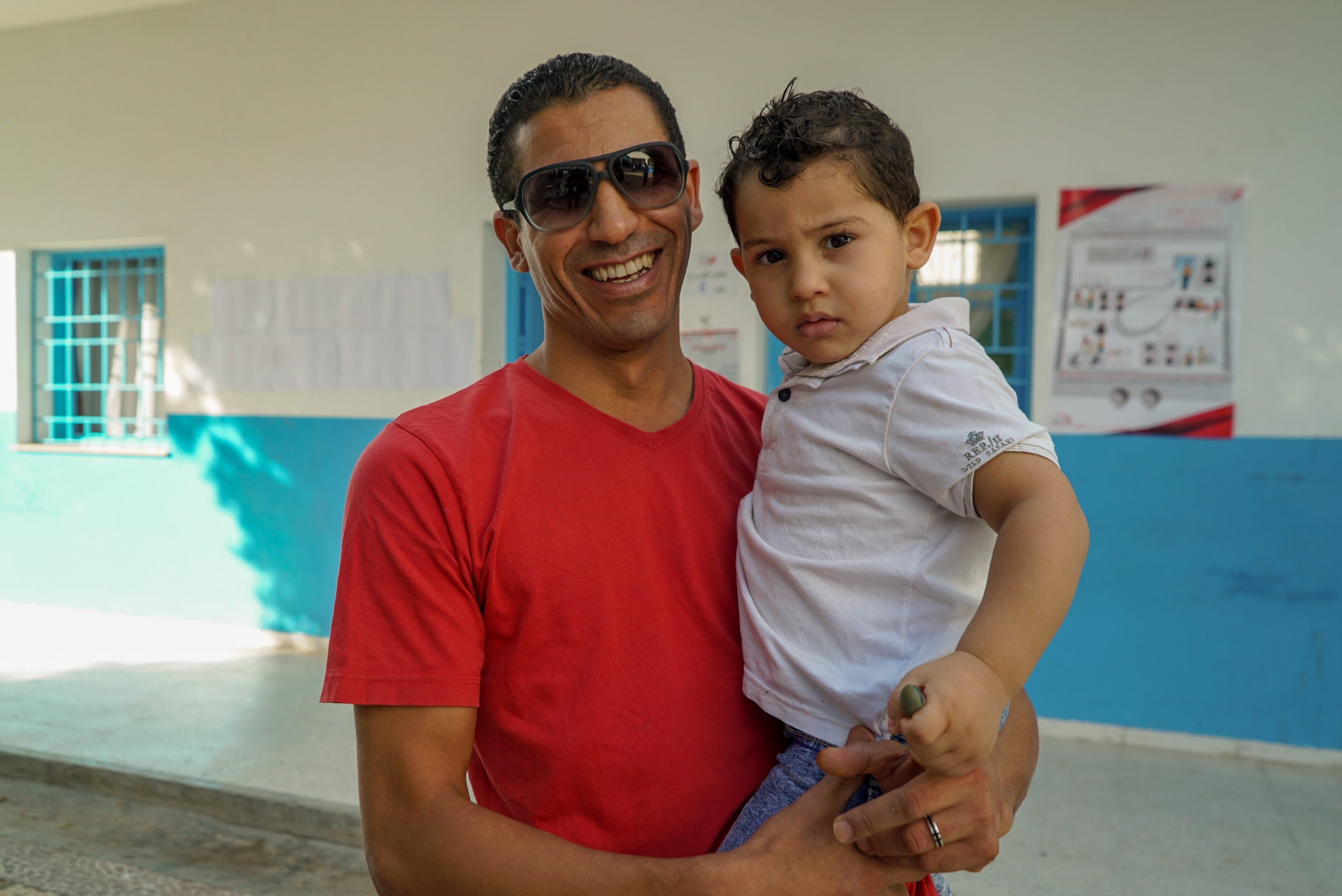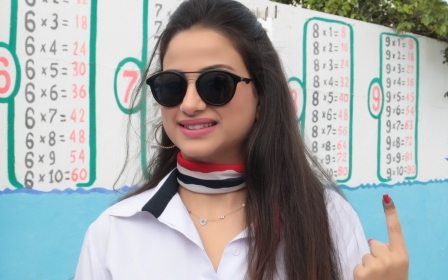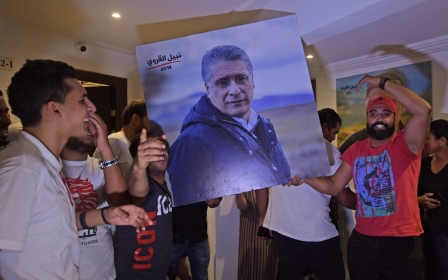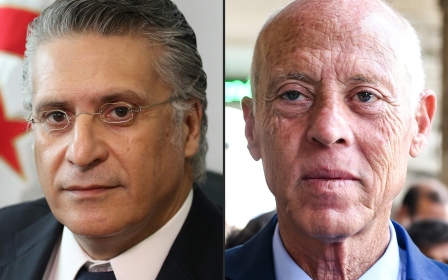Changing Tunisia 'for the better': Millions head to the polls to choose a new president
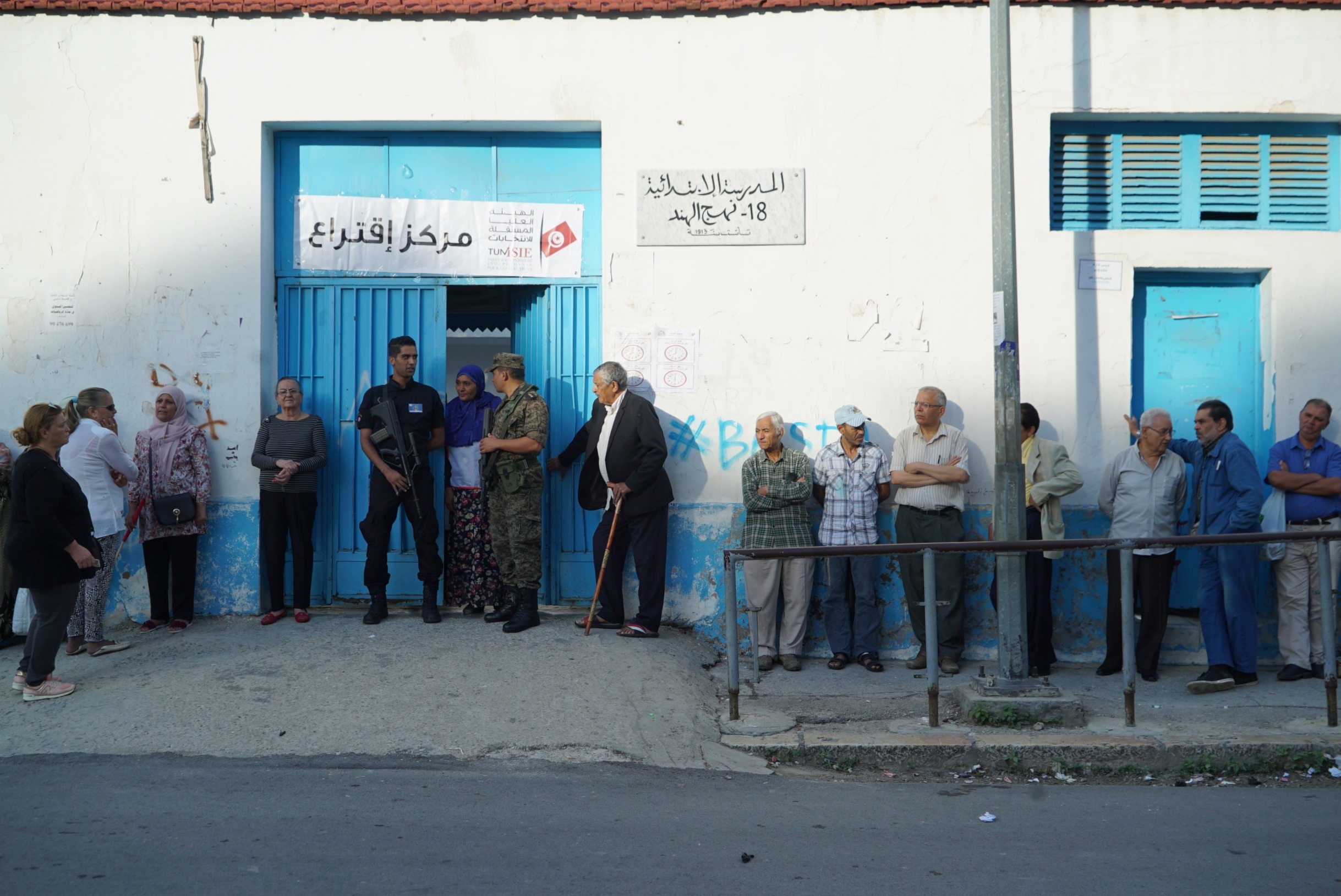
Millions of Tunisians went to the polls on Sunday to elect a new president in what analysts say is a major test for the only democracy to successfully emerge from the Arab spring uprisings.
Kais Saied, a retired constitutional law professor and political neophyte, is running against Nabil Karoui, a media tycoon who has drawn comparisons to Silvio Berlusconi and Donald Trump.
Both men secured shock wins in last month’s first-round vote, underscoring a sharp rejection of the country’s political establishment by most Tunisians.
Saied, 61, came first in the poll with 18.4 percent of the vote, while Karoui, 56, secured 15.6 percent - enough to advance to Sunday’s second-round run-off.
New MEE newsletter: Jerusalem Dispatch
Sign up to get the latest insights and analysis on Israel-Palestine, alongside Turkey Unpacked and other MEE newsletters
Tunisia's independent election body, ISIE, said voter turnout was just under 40 percent at 3:30pm local time.
In the capital, Tunis, dozens of voters had flocked to a school in the neighbourhood of Lafayette to stake their places in line, well before polling stations opened at 8am (07.00 GMT).
“I am really looking forward to the changes the new president will bring,” Rihab Abdelkafi, 44, told Middle East Eye, shortly after casting her ballot.
“Saied is a good and honest man who has not been implicated in corruption or petty party politics. Karoui is also good. Whatever the outcome of this vote, this election will hopefully change Tunisia for the better.”
Although the role of president has fewer powers than that of the prime minister, the post carries wide political influence.
The prime minister, who forms a government and manages most portfolios, will be picked by parliament in the coming months following last Sunday’s legislative elections.
Results for the presidential election are expected to be announced later this week.
‘Pasta man’ out of prison
“Saied seems to be the favourite,” Henrik Meyer, the resident director of German political foundation Friedrich-Ebert-Stiftung, told MEE.
“Although he is generally considered to be a conservative, he is far less polarising than Karoui, who has the image of a populist with a rather dubious reputation.”
Karoui has been mired in controversy since he announced his run for the presidency in early August and is currently facing charges of money laundering and tax fraud - allegations he vehemently denies.
Karoui was sent to prison on 23 August, but he was released earlier this week. During his detention, his hugely popular Nessma TV channel broadcast relied on stories about his philanthropy among the poor to boost his popularity.
Karoui could regularly be seen handing out food and medical aid to some of the country's poorest people, earning him the derogatory moniker ‘Nabil Makarouna’ - pasta man - by his detractors.
Constitutional experts have said it is unclear what will happen should he win the presidential election and then found guilty of the charges.
They say they can’t guarantee that he will qualify for immunity for crimes committed before the vote.
“Saied has a very clear anti-corruption position, whereas Karoui - not at all,” Meyer said. “While it is true that Karoui's campaign gravitates around the idea of fighting poverty, so far he has failed to present a plan in order to achieve this goal other than relying on the charity of the rich.
“This seems to fall short of the expectations of the Tunisian population.”
Tunisia analyst Mariem Masmoudi agreed, telling MEE that Saied had tapped into growing unrest with the trajectory the country was taking post-Arab Spring.
The ‘thinker’ versus the wealthy
In the weeks leading up to the poll, Saied went door-to-door to speak directly with voters, shunning billboards, television ads and flashy campaign concerts.
“He’s built a reputation for being serious, objective, insightful, and respectful ... never engaging in political bickering and party politics,” Masmoudi said.
The simplicity of his campaign may also have strengthened his credentials as a crusader against corruption, which many Tunisians believe has bedevilled their transition to democracy.
According to the World Bank, unemployment has risen from 12 percent before the uprising to 15 percent today and reaches 40 percent in some cities.
Tunisia’s public debt has also skyrocketed, amounting to more than 70 percent of economic output, a significant increase compared with the pre-revolution level of 40 percent.
On Friday, both candidates squared off in a televised debate, an event rarely witnessed in the Arab world.
Saied presented robust economic, domestic and foreign policies during the two-hour-debate, such as a desire to end the war in neighbouring Libya and a rejection of normalising ties with Israel.
More than six million Tunisians tuned in to watch, and several voters told MEE that Saied came out on top.
“I watched the debate and the thinker [Saied] came across far better than the guy who has loads of money [Karoui],” said Taher Weshtati, who came to the polls with his son.
“Now Tunisians are looking forward to the future, and we are hopeful that better things will come.”
Middle East Eye delivers independent and unrivalled coverage and analysis of the Middle East, North Africa and beyond. To learn more about republishing this content and the associated fees, please fill out this form. More about MEE can be found here.


